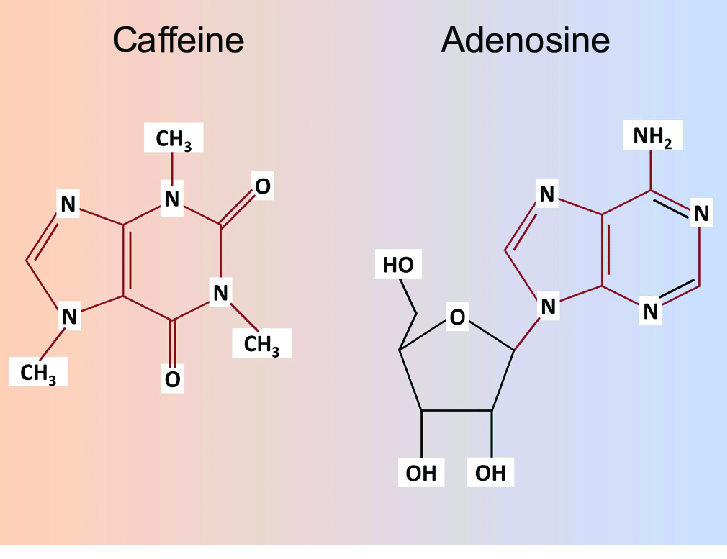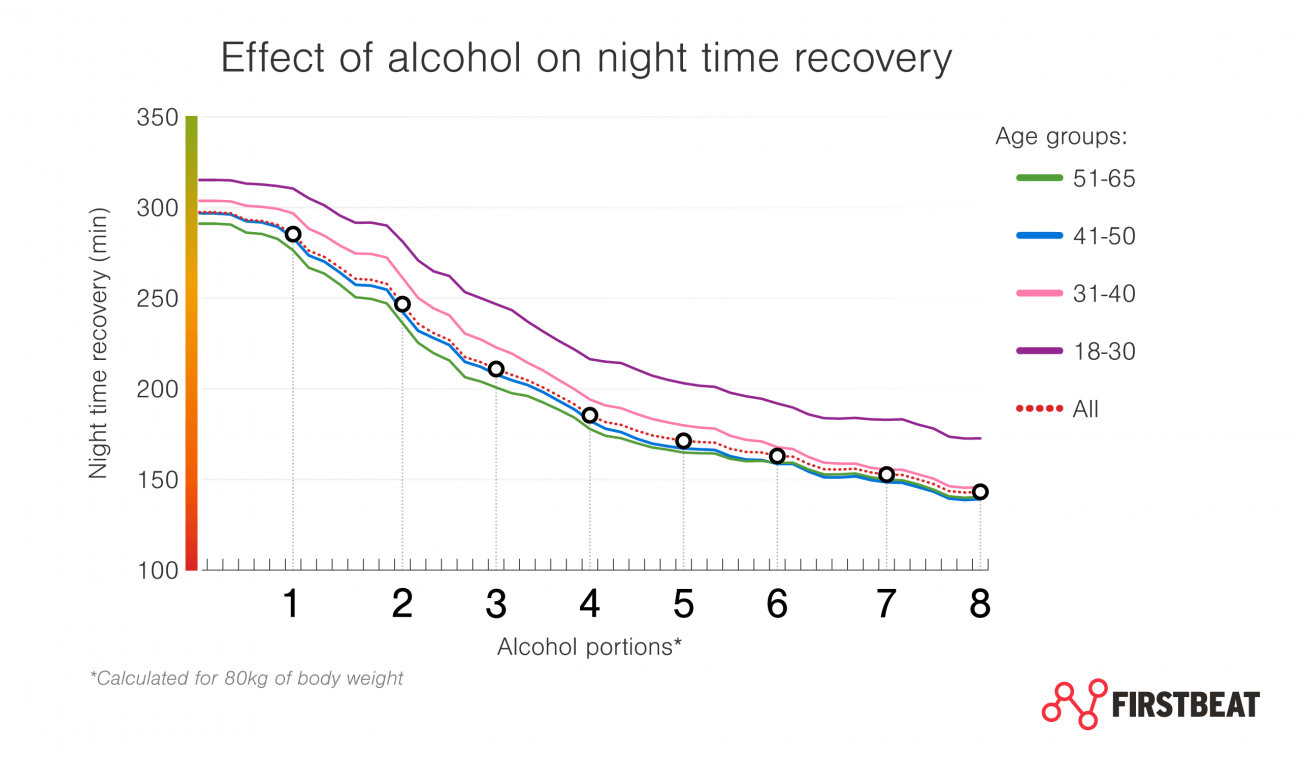As previously discussed in the first instalment of this article, we know that the vast majority of individuals are not sleeping well. This is likely detrimental to our health and is certainly not optimal for performance in both work and leisure aspects of our lives. So, if I was to recommend just a few behaviours which may improve our sleep quality, what would they be? Check it out:
Modification of caffeine intake
Caffeine is the world’s most popular performance enhancing drug. Most of you reading right now will have ingested some today, either in the form of coffee, tea, dark chocolate, or pre-workout powder, just to name a few sources.
When taken in a sensible dosage, and at a sensible time of day, caffeine isn’t a problem for sleep. However, due to some interesting biochemistry, caffeine can affect sleep from literally hours before your head hits the pillow. Let’s take a deeper dive:
First of all, in order to understand the effect of caffeine on sleep, we need to know about a compound called adenosine. Once we wake in the morning, we start to accumulate adenosine, which continues to increase in concentration throughout the day. The more cellular metabolism occurs, the more adenosine starts to collect and accumulate in the brain, and activate adenosine receptors. Once we fall asleep, adenosine is recycled and levels in the brain drop until waking in the morning again.
Therefore, increased activity levels lead to increased adenosine levels, which leads to increased adenosine receptor activation, which leads to increased tiredness. Got it?
So how does caffeine affect this process? Take a look at the picture below comparing caffeine and adenosine. Notice anything?
Caffeine is very similar in structure to adenosine. Think of caffeine as adenosine’s bully of an older brother – they look similar, but caffeine likes to get in the way. As soon as it can see adenosine trying to bind to the receptors, caffeine barges in and, even though it can’t squeeze in perfectly, it sits snugly enough in there to stop adenosine having all the fun.
Now – we know that adenosine binding to adenosine receptors is what makes us sleepy, so if caffeine is getting in the way, this just simply isn’t as possible. Luckily, just like older brothers in real life, caffeine gets bored of hogging all the fun out of spite, and, depending on the genetics of the person who has ingested the caffeine, it’ll disappear in a few hours. According to the Sleep Foundation, the effect of caffeine will wear off between 2-12 hours. This is because caffeine has a half life of 2-12hours depending on how sensitive the individual is to it. This means that for some individuals, in extreme cases, if they have a morning coffee containing 100mg of caffeine at 8am, they will still have 50mg of caffeine in their system at 8pm.
For most of us, the effect of caffeine will wear off after 2-6 hours. In this time, the adenosine is still being produced even though it can’t bind to the receptors. This is, theoretically, the cause of a caffeine ‘crash’, and is the reason why many people will cycle between coffee and crash every few hours in the day, but that’s a slight sidetrack…
So, what is the best practice for caffeine intake to limit the effect on sleep? If you want to be sure, try to avoid caffeine from 10 hours before you go to bed. It should help.
So we’ve looked at caffeine, but there is another substance that the majority of us ingest that significantly impairs sleep quality.
Modifying alcohol intake
Let’s get the myth busted straight away with this one. How many of you immediately thought: ‘But I get to sleep straight away after a few drinks?’
This may well be the case, but the negative effect of alcohol on sleep is very rarely an adjustment on the time to get to sleep. The issue lies with the stage of sleep which we outlined in part one of this topic the other week. For those who may remember, there is a stage of sleep called rapid eye movement, or REM sleep. After ingesting alcohol, we tend to spend less time in REM sleep for the first portion of the night. Strangely, this does actually shift a greater portion of sleep time spent in deep sleep – so what’s the problem? Well, we don’t stay intoxicated for the whole night, or at least, not on a regular basis I hope. As our bodies metabolise the alcohol, our sleep pattern shifts, and we then spend a significantly elevated time in the lightest stage of sleep. This makes us easier to wake, and significantly reduces the quality of our sleep. We may also need to wake more often to answer nature’s call. One final kicker here is that a consequence of all of the changes listed above, tends to be a shift to an earlier wake time.
So, in short, we may get too sleep sooner with the help of alcohol, but we also:
- Sleep less deeply
- Wake more frequently
- Wake earlier in the morning
- Feel more groggy upon waking
Now I know what you’re thinking: ‘Yeah, but I don’t go out on the lash every night, I just have one drink before bed’.
Well – bad news. Even that ‘one drink’ if such a thing truly exists, is enough to reduce sleep quality. As seen in the graph below, data provided by Firstbeat* research highlights that two units of alcohol (less than one can of lager or roughly one glass one wine) are enough to reduce night time recovery by 50 minutes compared to no alcohol at all.
*P.S – Interested in some seriously cool Firstbeat stress resilience coaching? Take a look at my website for prices and availability- link below.
The good news is, no, you don’t need to cut out alcohol completely to maintain your sleep hygiene. A unit of alcohol, by definition, takes the average adult roughly one hour to metabolise. So, provided that we drink in sensible quantities, we can work backwards from bedtime if needed. On average, we should aim to stop drinking three to four hours before our planned bedtime. This gives the liver enough time to metabolise the alcohol, provided we haven’t gone crazy, and should help to negate the effects of alcohol on sleep.
So – try to limit caffeine 10 hours before bed, and alcohol 3-4 hours before bed. What about the hour before bed?
Modifying the bedroom environment
Well, let’s have a look at the pre-bedtime rituals that should help to improve our sleep. Starting with the bedroom itself. This should be:
Quiet
Dark
Cool
Our brain responds to light in a very sensitive manner – it is the morning light which starts to signal our brain into getting ready for the day. With regards to temperature – our core temperature actually decreases as we sleep. Giving this a helping hand by opening a window, if sensible, will aid in quality sleep. Generally, between 16-19 degrees Celsius is a good target to aim for. Perhaps counterintuitively , a warm shower before bed will also accelerate the cooling process to the core of the body and may be beneficial. If opening a window to cool the room lets noise in from the outside, then do consider some ear plugs.
When it comes to the bedroom, try to think of it as your sleep temple. Electronic devices such as phones and TVs are best avoided in this room wherever possible, as you don’t want your brain to associate the bedroom with those activities instead of sleep. There is research to suggest that blue light emitted from electronic devices can interfere with the sleep cycle. This is what has led to certain light filters on these devices, or ‘bedtime mode’. However, research now also suggests this isn’t the case. My personal take is that if you’re avoiding screens in the hour or so before bed, whether the blue light makes a difference or not doesn’t matter.
If you cut out the use of electronic devices and screens an hour from bedtime, this also gives some spare time towards stress management. Most of us will work 5 days per week, and this can lead to an accumulation of physiological and psychological stress. Taking 20 minutes to yourself, to reflect and engage in meditation or mindfulness has been shown to improve sleep quality. These habits help to activate the parasympathetic nervous system, which is commonly referred to as the ‘rest and digest’ system.
If everybody followed these three tips, the majority of individuals would see an uptick in sleep duration and quality. There are a huge number of factors which affect sleep quality, but in my opinion, these are the pillars that I focus on first. Please feel free to leave any comments below, or if you’re looking for specific advice, just give me a message.





